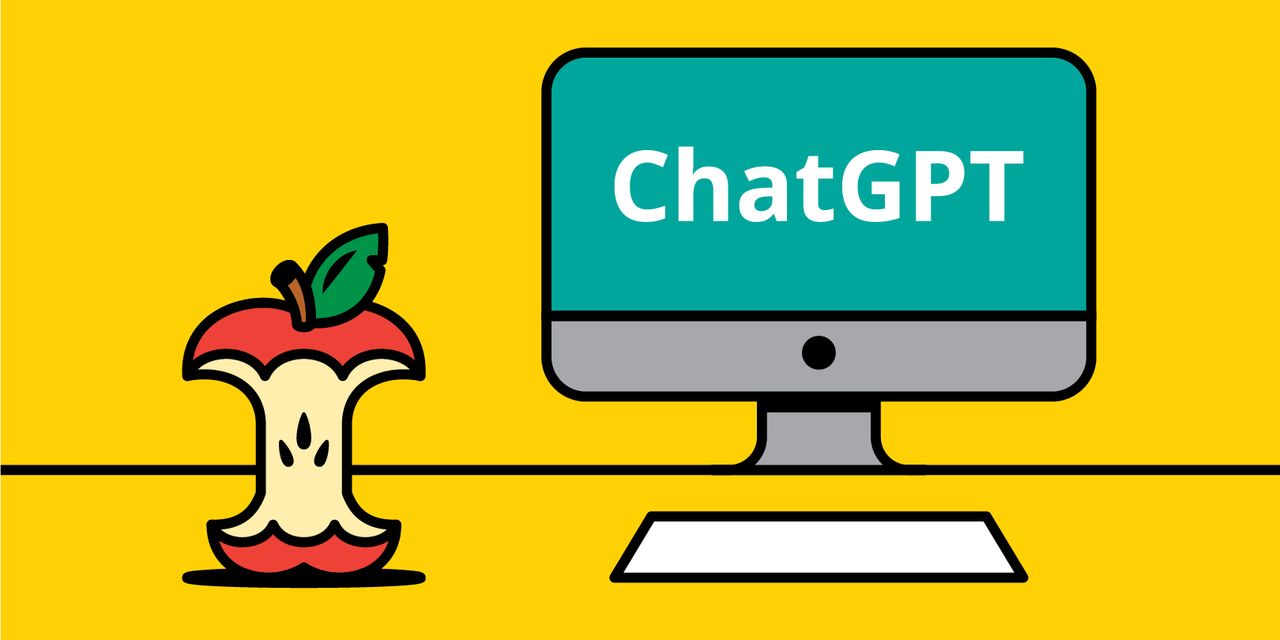Since the release of ChatGPT, companies have scrambled to understand how generative artificial intelligence will affect jobs. This past week,
IBM
CEO Arvind Krishna said the company will pause hiring for roles that could be replaced by AI—affecting as much as 30% of back-office jobs over five years. And
Chegg,
which provides homework help and online tutoring, saw its stock lose half of its value after warning of slower growth as students turned to ChatGPT.
A recent study by a team of professors from Princeton University, the University of Pennsylvania, and New York University analyzed how generative AI relates to 52 human abilities. The researchers then calculated AI “exposure” for occupations. (Exposure doesn’t necessarily mean job loss.) Among high-exposure jobs, a few are obvious—telemarketers, HR specialists, loan officers, and law clerks. More surprising: Eight of the top 10 are humanities professors.
In a survey from customer-service software firm Tidio, 64% of respondents thought chatbots, robots, or AI can replace teachers, though many believe that empathy and listening skills may be tough to replicate. A survey from the Walton Family Foundation found that within two months of ChatGPT’s introduction, 51% of teachers tapped it for lesson planning and creative ideas. Some 40% said they used it at least once a week, compared with 22% of students.
AI isn’t just knocking on the door; it’s already inside. Language-learning app
Duolingo
has been using AI since 2020. Even Chegg unveiled an AI learning service called CheggMate using OpenAI’s GPT-4. Still, Morgan Stanley analyst Josh Baer wrote that it’s “highly unlikely” that CheggMate can insulate the company from AI.
| 1. Telemarketers | |
|---|---|
| 2. English language and literature teachers, postsecondary | |
| 3. Foreign language and literature teachers, postsecondary | |
| 4. History teachers, postsecondary | |
| 5. Law teachers, postsecondary | |
| 6. Philosophy and religion teachers, postsecondary | |
| 7. Sociology teachers, postsecondary | |
| 8. Political science teachers, postsecondary | |
| 9. Criminal-justice and law-enforcement teachers, postsecondary | |
| 10. Sociologists |
Source:
Write to Evie Liu at [email protected]
Next Week
Monday 5/8
Devon Energy,
KKR,
McKesson,
PayPal Holdings,
and
Tyson Foods
release earnings.
Tuesday 5/9
Airbnb,
Air Products & Chemicals,
Apollo Global Management,
Duke Energy,
Electronic Arts,
Occidental Petroleum,
and TransDigm Group report quarterly results.
The National Federation of Independent Business releases its Small Business Optimism Index for April. Consensus estimate is for a 90 reading, roughly even with the March figure. The index has had 15 consecutive readings below the 49-year average of 98 as inflation and a tight labor market remain top of mind for small-business owners.
Wednesday 5/10
Walt Disney
reports second-quarter fiscal-2023 results. Shares of the entertainment giant are up 16% this year, after plunging 44% in 2022, the worst performance since 1974. The company’s brouhaha with Florida Gov. Ron DeSantis continues apace with a lawsuit and counterlawsuit filed.
Brookfield Asset Management,
Roblox,
Toyota Motor,
and Trade Desk release earnings.
The Bureau of Labor Statistics releases the consumer price index for April. Economists forecast a 5% year-over-year increase, matching the March data. The core CPI, which excludes volatile food and energy prices, is expected to rise 5.4%, two-tenths of a percentage point less than previously. Both indexes are well below their peaks from last year but also much higher than the Federal Reserve’s 2% target.
Thursday 5/11
Honda Motor,
JD.com,
PerkinElmer,
and
Tapestry
hold conference calls to discuss quarterly results.
Honeywell International
hosts an investor day.
The Bank of England announces its monetary-policy decision. The central bank is widely expected to raise its bank rate by a quarter of a percentage point, to 4.5%. The United Kingdom’s CPI rose 10.1% in March from the year prior, making it the only Western European country with a double-digit rate of inflation.
The Department of Labor reports initial jobless claims for the week ending on May 6. Claims averaged 239,250 in April, returning to historical averages after a prolonged period of being below trend, signaling a loosening of a very tight labor market.
The BLS releases the producer price index for April. The consensus call is for the PPI to increase 2.4% and the core PPI to rise 3.3%. This compares with gains of 2.7% and 3.4%, respectively, in March. The PPI and core PPI are at their lowest levels in about two years.
Friday 5/12
The University of Michigan releases its Consumer Sentiment Index for May. Economists forecast a dour 62.6 reading, about one point lower than in April. Consumers’ year-ahead inflation expectations surprisingly jumped by a percentage point in April to 4.6%.
Read the full article here


